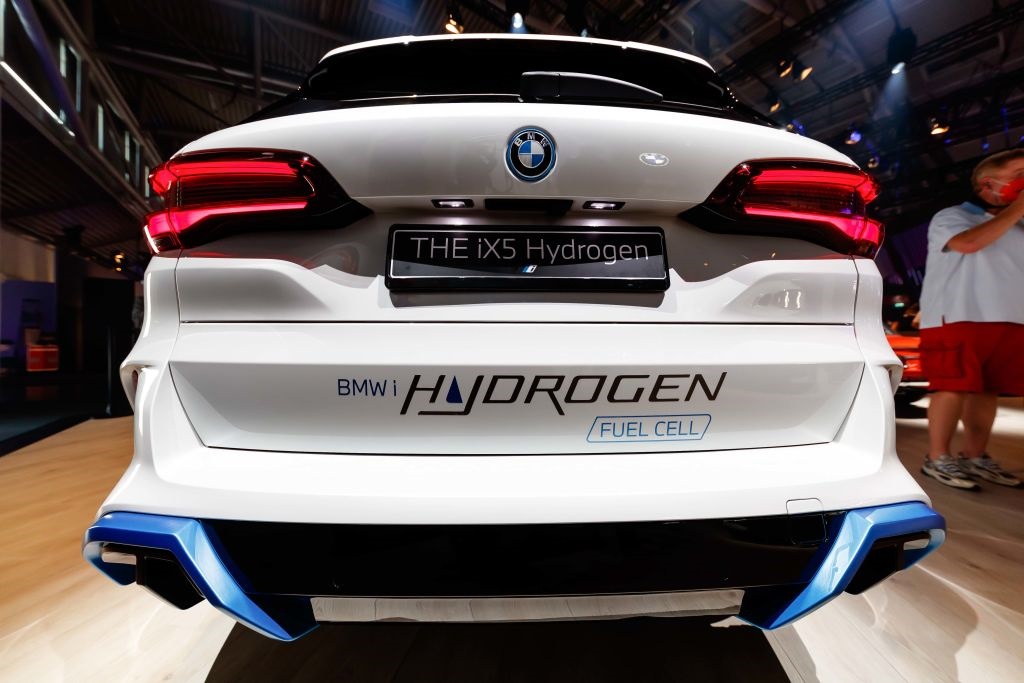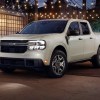
Your Next BMW X5 Could Be Hydrogen Powered
While all-electric vehicles are getting more popular, BMW has been quietly working on developing an alternative that’s hydrogen-powered. Get ready for the new iX5 Hydrogen SUV, which is in the final stage of development. The X5 is one of BMW’s most important vehicles, so why not use the platform to explore alternative forms of power like hydrogen?
Does BMW have a hydrogen car?
BMW is in the final stages of development for the iX5 Hydrogen SUV. The company has been testing it under “extreme conditions,” it said, which includes cold weather testing. This fall you could see one of BMW’s iX5s testing on roads in Europe. Last fall BMW inaugurated a fuel cell manufacturing plant in Munich jus for making hydrogen fuel cell motors. BMW and Toyota are working together to develop the cells, which isn’t a surprise since Toyota has been selling the Toyota Mirai fuel cell car since 2014.
You could see an iX5 Hydrogen on the road soon

BMW says a small fleet of iX5 SUVs will be testing on the road this fall. But CNET has already driven one, and reports that it’s almost normal. Overall, the iX5 is an X5 SUV, which means it seats five, but the iX5 only has one motor driving the rear wheels instead of all four. The hydrogen version is almost as powerful as the X5 plug-in hybrid, though it does carry 5,600 pounds of weight. You can’t buy one yet, but if the test fleet of 100 iX5s proves its mettle, maybe we will some on U.S. roads in the next few years.
How does a hydrogen engine work?
Hydrogen vehicles don’t run on hydrogen: they are actually electric vehicles. Hydrogen vehicles use a fuel cell to make electricity. To simplify things, hydrogen passes through a membrane and reacts with oxygen, which creates electricity and water vapor. The electricity can either go directly to a motor or to a battery and leaves no pollutants, according to BMW.
What are the advantages of hydrogen?
Because the hydrogen-made electricity constantly charges a battery, not an outlet, the battery can be significantly smaller. Hydrogen tanks are easy to fill in minutes, and BMW says its tanks can power a vehicle for up to 300 miles. Cold weather can wreak havoc on batteries, but hydrogen isn’t affected by temperatures.
What are the disadvantages of a hydrogen vehicle?

Today, the big hurdle is infrastructure. Hydrogen fuel pumps are simply few and far between, and its also expensive. Also, the fuel cell needs platinum (or other rare-Earth metals) to separate the atoms in the hydrogen, which is very expensive. Hydrogen tanks are also very large, which means that they’re impractical for a small car or SUV. The big fear for a lot of people is that hydrogen is flammable, after all the Hindenburg was filled with hydrogen. But in hydrogen-powered cars, it’s stored as a liquid in tanks that have gone through crash tests.


